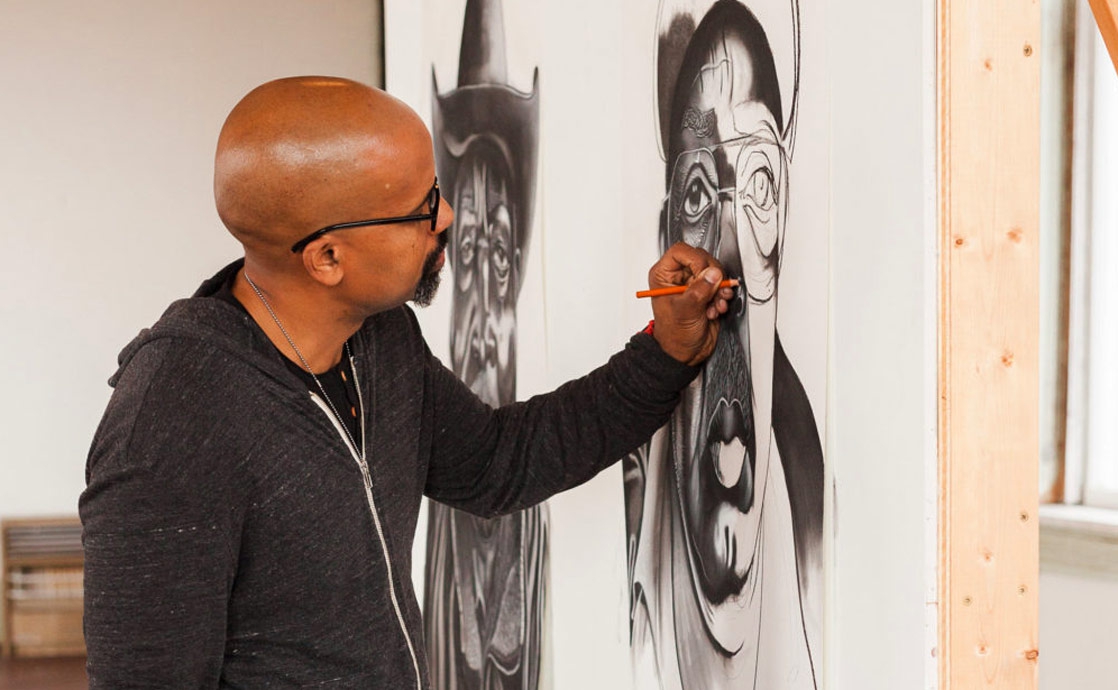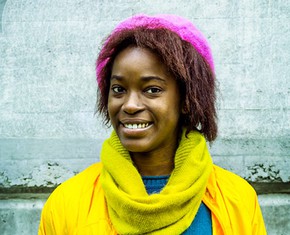The views expressed in our content reflect individual perspectives and do not represent the authoritative views of the Baha'i Faith.
I have always enjoyed being alone. Don’t get me wrong. I also love being around people — mostly in measured doses — but my natural inclination has always been to seek the solitude necessary for reflection and focused creativity.
I can trace this preference back to my childhood. Growing up as a latchkey kid raised primarily by a single working mother in New York City, I necessarily spent a lot of time alone. In the hours that I had to myself after school, I would sit in front of my tiny black and white television set and make sketches of the cartoon characters I watched each afternoon religiously: Speed Racer, Thunderbirds, Ultraman, and others. Drawing was a creative bridge for me, a way to cross over to a world that existed at the periphery of my imagination — a world where I never felt alone or isolated.
As my hand pushed and pulled my No. 2 Dur-O-lite pencils across the office typing paper — both of which came from the copy room of the law practice where my mother worked — I was unaware of the metered passage of time or the ambient noises of the city. Creativity opened this magical door inside of me that led to places beyond my material reality. And, even though I was too young to know it at the time, in those moments of meditative artistic practice, as I drifted between a conscious and subconscious state, It was as if I was in silent conversation with my spirit.
Physically, my 11-year-old body was in my small bedroom overlooking the steel trusses of the Queensboro Bridge, but drawing taught me that I had wings that could lift me out of the complexity of my circumstance and show me new realities. Many years later, I’d read what Baha’u’llah, the prophet and founder of the Baha’i Faith wrote — “Arts, crafts and sciences uplift the world of being, and are conducive to its exaltation. Knowledge is as wings to man’s life, and a ladder for his ascent” — and remember how I felt in that bedroom.

Every day after school, I couldn’t wait to take that journey – to stretch my wings and see how high and how far they could carry me. Like most kids, I enjoyed running the streets with my friends. Kevin, Rico, and I would buy Jolly Ranchers and Now and Laters from the neighborhood bodega and ride our skateboards, zig-zagging through crowds on busy sidewalks, but I always felt the call of the page — a gentle but insistent urging to return to my fantastical characters and imagined worlds. Drawing fascinated and thrilled me. It wasn’t until I was an adult that I realized it also saved me.
Like many American cities in the 1980s, New York suffered from the social ills of gross inequality, gang violence, police brutality, drug abuse, rampant corruption, and urban decay, which regrettably still haunt us today. The children of the poor, disproportionately black and brown, faced a gauntlet of daily challenges that competed for our attention, threatened to arrest our development, and undermine our God-given potential. Baha’u’llah wrote how to develop and nurture this potential: “Regard man as a mine rich in gems of inestimable value. Education can, alone, cause it to reveal its treasures, and enable mankind to benefit therefrom.”
It wasn’t only the visible manifestations of a social structure fundamentally at odds with the spiritual truths of divine justice, love, compassion, and equality that acted as oppressive forces. There was an attitudinal subtext, an unspoken cohort of daily judgments that said we were worthless, deserved less, and would get less. Some of us believed these silent indictments, which were reinforced by the material evidence of meager opportunities and multigenerational poverty. For those among us who did, the streets became a dumping ground for the discarded gifts of the forgotten and the forward progress of the community, the nation, and the world slowed.
Reflecting on that experience, it’s clear why the Universal House of Justice, the administrative governing body for the Baha’is of the World, recently wrote: Racism is a profound deviation from the standard of true morality. It deprives a portion of humanity of the opportunity to cultivate and express the full range of their capability, and to live a meaningful and flourishing life, while blighting the progress of the rest of mankind.
For those of us lucky enough to wrench ourselves from deprivation’s grip, we did not escape the struggle unscathed. It left enduring wounds on our psyche.
In the Baha’i writings, one of the descriptive terms associated with the word of God is creativity. The revelation is endowed with a transformative capacity that can create a new reality in us, one reflective of our station’s dignity. The daily practice of studying the teachings, internalizing their meaning, and then expressing that understanding through action works on the soul like a sculptor carving a block of wood or stone. In the hands of the supreme Artist we are clay kneaded until we are pliant and then formed into vessels into which He pours His infinite love, His mercy, and His grace, equipping us with the capacity to endure our tests and transcend the limits of our circumstance. In another letter, the Universal House of Justice wrote:
A Bahá’í who has studied the Teachings of Bahá’u’lláh, who has accepted His claim to be the Manifestation of God for this Age, and who has seen His Teachings at work in his daily life, knows as the result of rational investigation, confirmed by actual experience, that true religion, far from being the product solely of human striving after truth, is the fruit of the creative Word of God which, with divine power, transforms human thought and action.
Today, when I am in my studio working my way through some creative challenge, I remember that 11-year-old boy, and I am grateful that he chose to pick up a pencil or a paintbrush instead of a knife or a gun. I am thankful that the righteous indignation he felt and still feels about the entrenched injustices in the world found a voice through the transformative power of creative expression. This is the work of the artist as an alchemist, collecting the scattered shards of his reality and weaving a tapestry of hope and possibility. It is the endeavor of great artists like Romare Bearden, Don Camp, and Kerry James Marshall. It is the labor of powerful writers like Langston Hughes, Robert Hayden, and Toni Morrison. It is the toil of musicians like John Coltrane, Dizzy Gillespie, Donny Hathaway, and Aretha Franklin. When this work is inspired by the creative word of God — when it is performed in a spirit of service — it becomes an incantation of the spirit, an invocation of the soul. It becomes prayer.























Comments
Sign in or create an account
Continue with Googleor